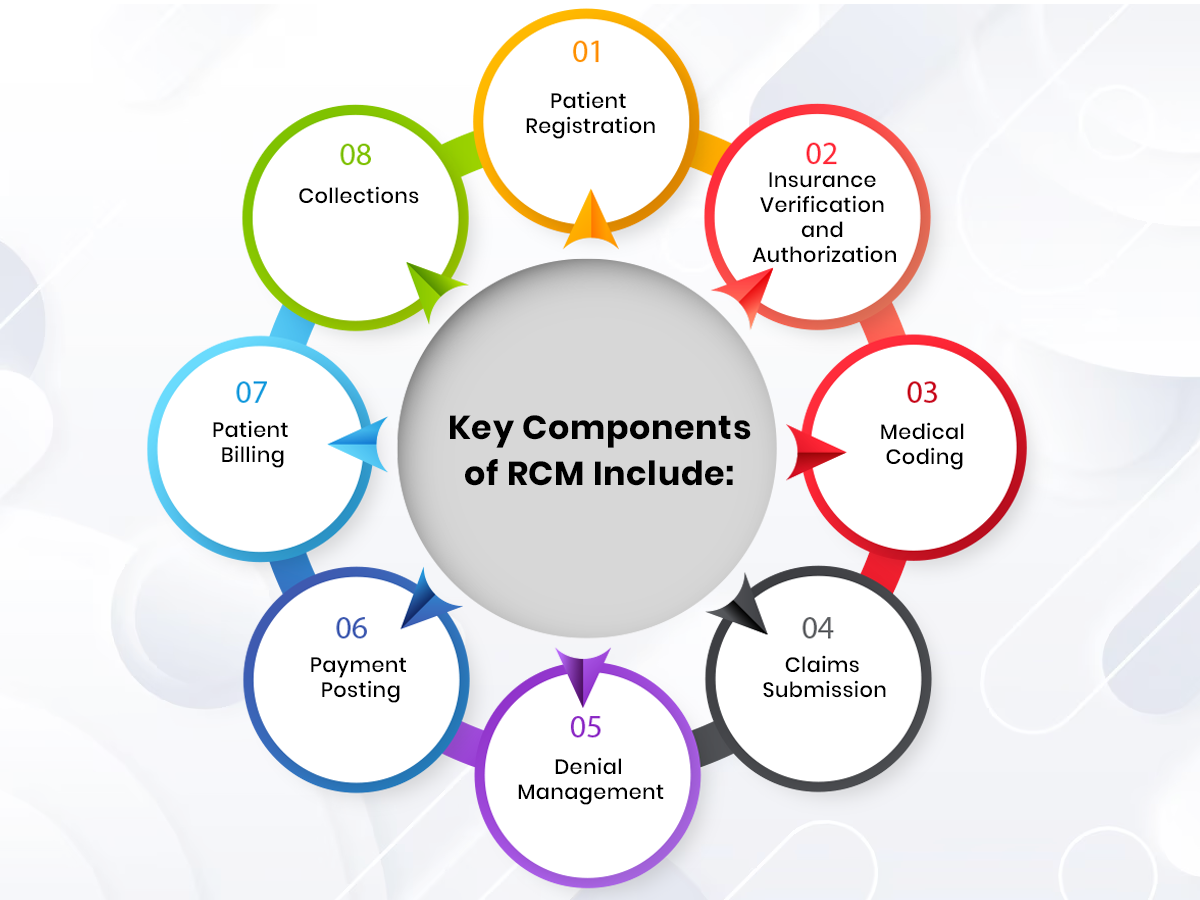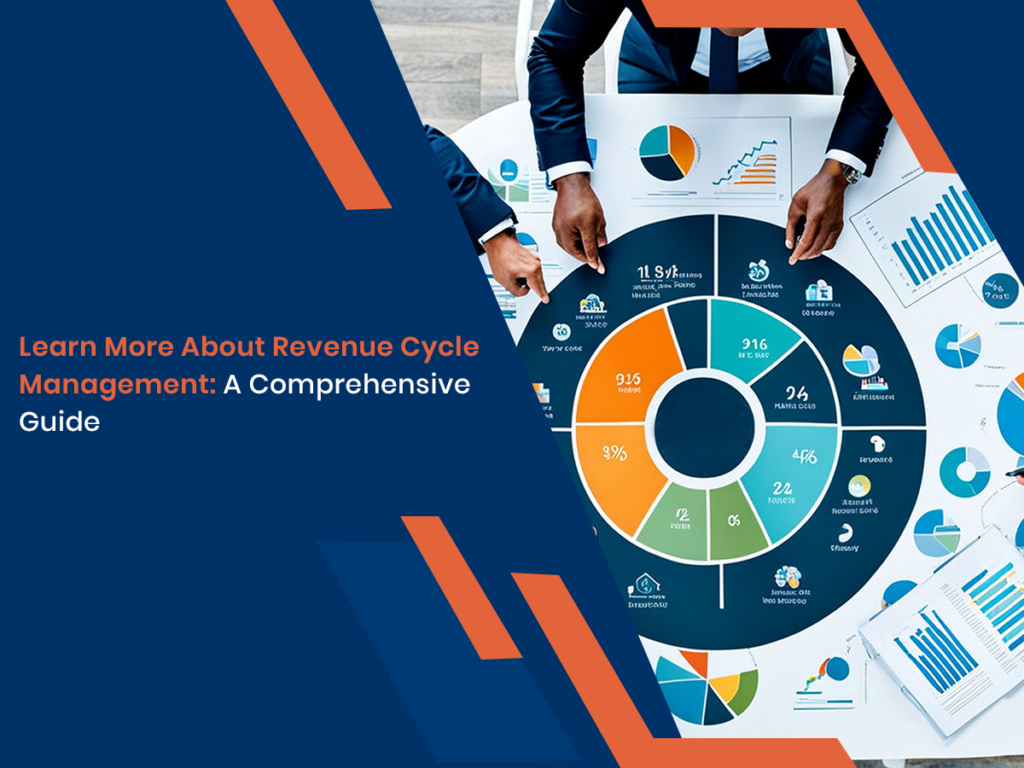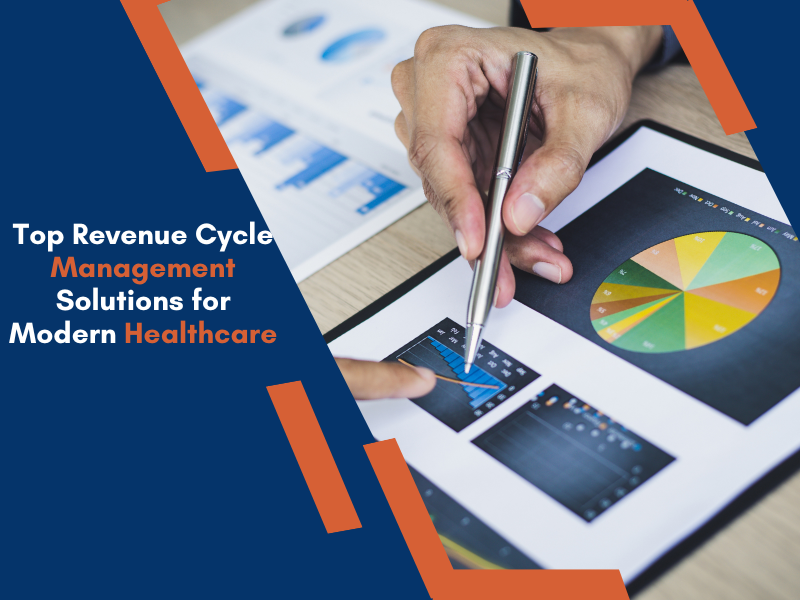In today’s complex healthcare environment, efficient financial management is critical for the sustainability and growth of healthcare organizations. At the heart of this financial ecosystem is Revenue Cycle Management (RCM)—a process that ensures healthcare providers are compensated for their services in a timely and accurate manner. Understanding the intricacies of RCM is vital not only for healthcare administrators but also for professionals in medical billing and coding, as they play a crucial role in keeping the revenue cycle flowing smoothly.
In this blog, we’ll explore what revenue cycle management is, why it matters, and how organizations can optimize it for financial success and better patient care.
What is Revenue Cycle Management (RCM)?
Revenue Cycle Management (RCM) is the end-to-end process that healthcare organizations use to track patient care episodes, from registration and appointment scheduling to the final payment of a balance. It involves all administrative and clinical functions that contribute to capturing, managing, and collecting patient service revenue.
Key Components of RCM Include:

- Patient Registration: Gathering demographic, insurance, and financial information during the initial contact with the patient.
- Insurance Verification and Authorization: Ensuring that a patient’s insurance plan covers the services being provided, and securing pre-authorization for treatments when necessary.
- Medical Coding: Translating medical services and diagnoses into standardized codes used by insurance companies for claims processing.
- Claims Submission: Sending coded claims to insurance companies to seek reimbursement for services rendered.
- Denial Management: Addressing rejected or denied claims by correcting errors and resubmitting them.
- Payment Posting: Recording payments from insurance providers and patients.
- Patient Billing: Issuing bills to patients for outstanding balances.
- Collections: Following up on unpaid bills to ensure full payment is received.
Why is RCM Important?
Effective RCM ensures that healthcare providers are paid promptly and accurately for the services they provide, reducing the financial strain on organizations and allowing them to focus on patient care. Inefficient RCM processes can lead to delayed payments, claim denials, and increased administrative burdens, all of which can negatively affect a healthcare provider’s bottom line.
The Benefits of an Efficient RCM System:
- Improved Cash Flow: By minimizing payment delays and ensuring claims are processed quickly, healthcare providers can maintain a healthy cash flow.
- Fewer Claim Denials: Accurate coding and timely submission reduce the number of denied claims, ensuring providers get paid the full amount they are entitled to.
- Reduced Administrative Costs: Automation and streamlined processes can help reduce the workload of staff, allowing them to focus on more value-added activities.
- Compliance: A well-managed RCM system helps ensure compliance with healthcare regulations and standards, reducing the risk of legal issues and fines.
- Enhanced Patient Satisfaction: When billing is clear and accurate, and patients are informed about their financial responsibilities upfront, it improves the overall patient experience.
Steps to Optimize Revenue Cycle Management
- Invest in Technology: Modern healthcare management software can automate many aspects of the revenue cycle, from patient registration to claims submission. These systems reduce human error, speed up processing times, and allow for real-time tracking of claims.
- Ensure Accurate Coding: Medical billing and coding specialists are critical to the success of RCM. Training and certification are essential to ensuring that codes are applied correctly and that claims are not rejected due to errors. Continuous education on the latest coding updates is crucial to staying compliant with regulatory changes.
- Monitor Key Performance Indicators (KPIs): Regularly tracking KPIs such as denial rates, days in accounts receivable (AR), and collection rates can help identify inefficiencies in the RCM process. These metrics provide insights into areas that need improvement.
- Improve Patient Communication: Transparency with patients about their financial obligations before services are rendered can help reduce confusion and increase the likelihood of prompt payments. Providing patients with clear billing statements and offering flexible payment options can also improve collections.
- Denial Management Strategies: Implement a dedicated team to handle denied claims. Having a clear process in place for identifying the cause of denials, correcting errors, and resubmitting claims can significantly reduce the impact of denials on revenue.
- Ongoing Staff Training: Staff involved in the RCM process, particularly in billing and coding, should undergo regular training to stay updated on regulatory changes, coding practices, and insurance requirements. This will reduce the likelihood of errors and improve overall efficiency.
The Role of Medical Billing and Coding in RCM
Medical billing and coding specialists are pivotal in the RCM process, ensuring that services provided are accurately translated into the codes used for insurance claims. Their role is not just administrative but also strategic, as errors in coding can lead to claim denials, delayed payments, or even legal issues. By accurately coding and submitting claims, they ensure that healthcare organizations receive timely and correct reimbursement.
Certified specialists stay up-to-date on ever-changing healthcare regulations and insurance policies, helping to navigate the complexities of claims submissions, resubmissions, and denials. Their expertise minimizes errors and boosts efficiency across the RCM process.
Conclusion
Revenue Cycle Management is the lifeblood of any healthcare organization. When optimized, it not only improves cash flow but also reduces the administrative burden and enhances patient satisfaction. An efficient RCM process ensures that healthcare providers can focus on what matters most—delivering high-quality care to their patients.
At Apaana Healthcare, we understand the critical importance of RCM and offer tailored solutions to help healthcare organizations streamline their operations, improve financial performance, and enhance patient experiences. To learn more about how we can assist you with your revenue cycle management needs, visit our website or explore our range of healthcare management solutions.





